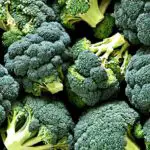Medjool dates are a type of fruit that has been enjoyed for centuries. They are known for their rich, sweet flavor and chewy texture. These dates are grown in several parts of the world, including Morocco, Israel, and the United States, among others. Medjool dates are often referred to as the “king of dates” due to their large size and unique taste.
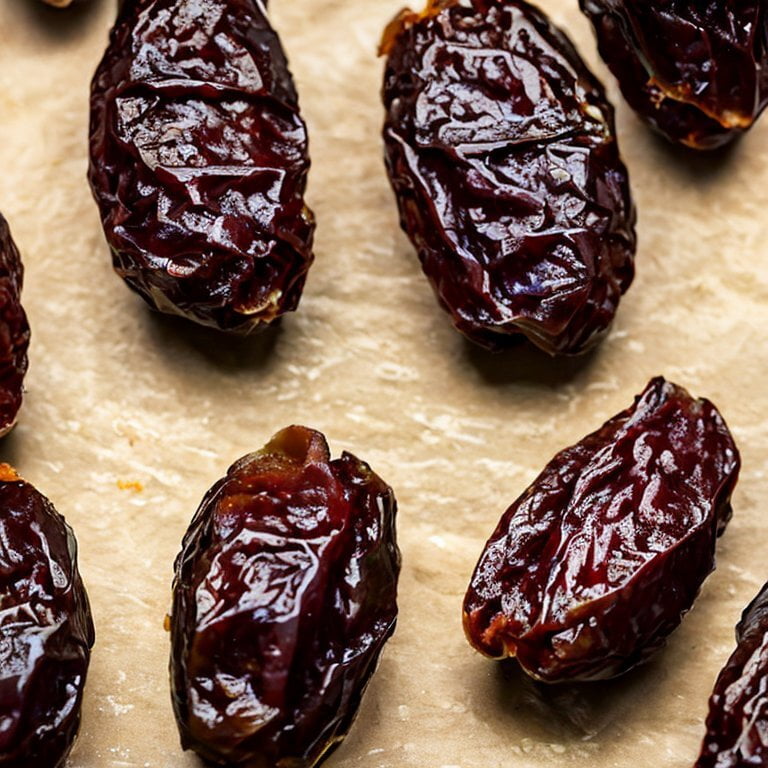
Contents
- Medjool Dates Origin
- Characteristics of Medjool Dates
- Uses of Medjool Dates
- Medjool Dates Benefits
- Medjool Dates Nutrition
- Final Thoughts
Medjool Dates Origin
Medjool dates have a rich history that can be traced back to ancient times. It is believed that they originated in Morocco, where they were reserved only for royalty. The fruit was so highly regarded that it was often referred to as the “fruit of kings.” Medjool dates were also used as a form of currency in ancient times.
In the early 20th century, a group of Medjool date palms was brought to the United States from Morocco. These trees were planted in California, where they thrived and became the basis for the American Medjool date industry. Today, California is one of the largest producers of Medjool dates in the world.

Characteristics of Medjool Dates
Medjool dates are known for their large size and soft, chewy texture. They are often described as having a caramel-like taste with a subtle nutty flavor. Medjool dates are typically sold with the pit still intact, which can be easily removed before eating.
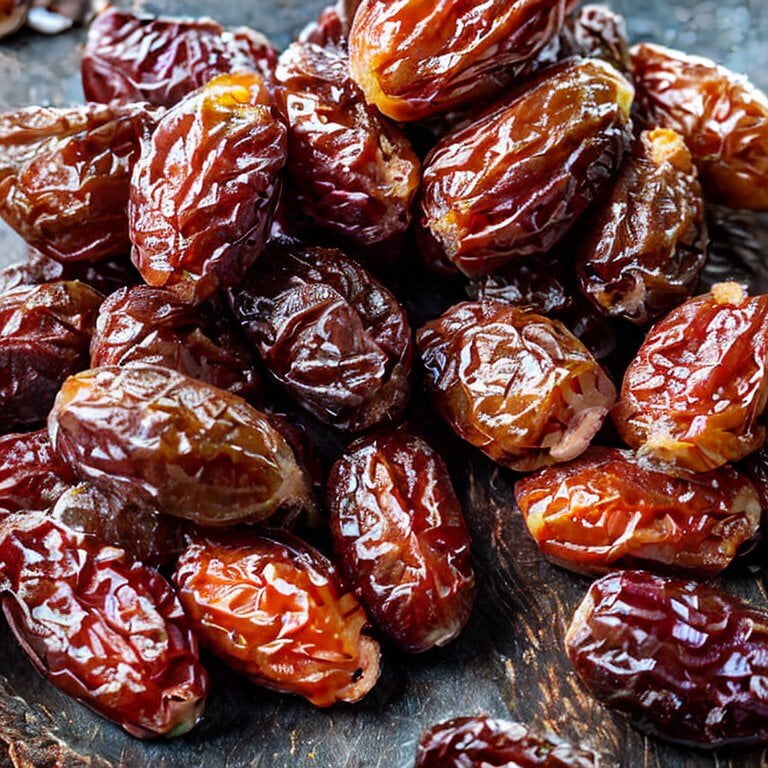
One of the reasons that Medjool dates are so highly prized is their nutritional content. They are an excellent source of fiber, vitamins, and minerals, including potassium, magnesium, and copper. Medjool dates are also low on the glycemic index, which means that they do not cause a rapid spike in blood sugar levels.
Uses of Medjool Dates
Medjool dates are a versatile fruit that can be used in a wide range of dishes. They are often eaten raw as a snack, either on their own or stuffed with nuts or cheese. Medjool dates can also be used in cooking, where they are often used to add natural sweetness to dishes.
In Middle Eastern cuisine, Medjool dates are a staple ingredient in many dishes. They are often used in tagines, stews, and other savory dishes. In Morocco, Medjool dates are often served as a dessert with a cup of mint tea.
Medjool dates can also be used to make a range of sweet treats, including cakes, cookies, and energy balls. These treats are often made with natural ingredients and are a healthier alternative to traditional desserts.
To learn how to eat Medjool dates, see Medjool Dates – How to Eat.
Medjool Dates Benefits
Here are some of the top benefits of Medjool dates: (To see how they compare with other dates, see Are Medjool Dates Healthier Than Other Dates? and Medjool Dates vs Dates)
Medjool Dates Nutritional Benefits
Medjool dates are an excellent source of nutrition. They are high in fiber, which helps regulate digestion and promote feelings of fullness. Medjool dates are also rich in vitamins and minerals, including potassium, magnesium, and copper, which are essential for maintaining good health.
One of the significant benefits of Medjool dates is that they have a low glycemic index. This means that they do not cause a rapid spike in blood sugar levels, making them an ideal snack for people with diabetes or anyone looking to manage their blood sugar levels.
Medjool dates are also rich in antioxidants, which help protect the body against free radical damage. They contain natural compounds that have anti-inflammatory properties, which can help reduce the risk of chronic diseases such as heart disease and cancer.
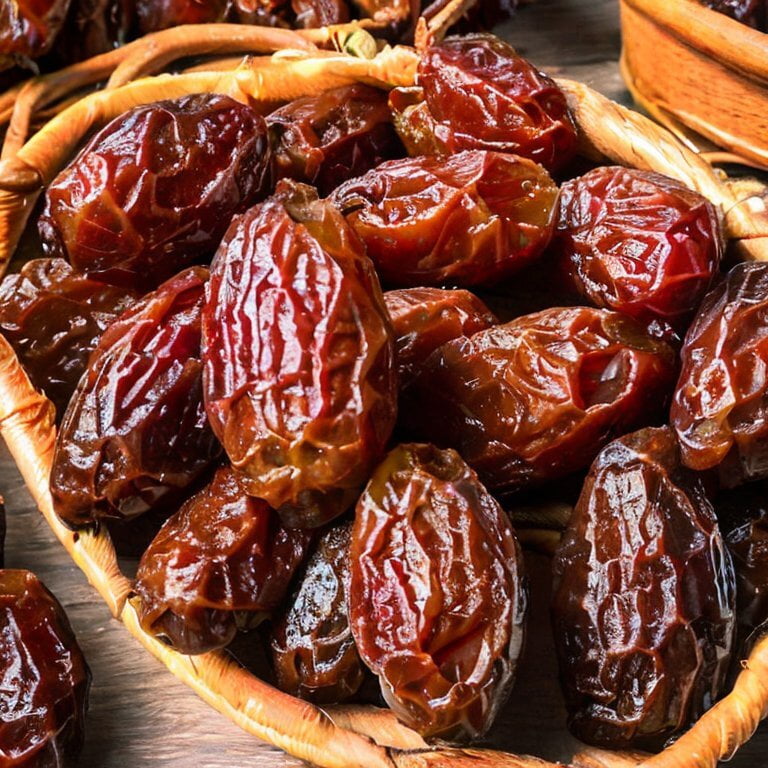
Energy Boosting Benefits of Medjool Dates
Medjool dates are an excellent source of energy. They are rich in carbohydrates, which the body converts into glucose, providing a quick burst of energy. Additionally, they are also rich in natural sugars, making them an ideal snack for athletes or anyone looking for a quick energy boost.
Medjool dates are also rich in potassium, which helps regulate fluid balance in the body. Potassium is an electrolyte that is essential for maintaining healthy nerve and muscle function. When the body is low in potassium, it can lead to muscle weakness and fatigue. Eating Medjool dates can help replenish potassium levels in the body, providing a natural energy boost.
Weight Management Benefits of Medjool Dates
Medjool dates can also help with weight management. They are high in fiber, which can help regulate digestion and promote feelings of fullness. Eating Medjool dates as a snack can help curb cravings for unhealthy foods, making it easier to stick to a healthy diet.
Furthermore, Medjool dates are a healthier alternative to traditional sweet treats such as candy and chocolate. They provide a natural source of sweetness, without the added sugar and unhealthy ingredients found in processed snacks.
Medjool Dates and Bone Health
Medjool dates are a rich source of minerals, including calcium and magnesium, which are essential for maintaining healthy bones. Calcium is needed for building strong bones, while magnesium is required for calcium absorption. Eating Medjool dates regularly can help ensure that the body is getting enough of these important minerals, promoting strong and healthy bones.
Medjool Dates and Digestive Health
Medjool dates are high in fiber, which is essential for maintaining healthy digestion. Fiber helps regulate bowel movements, preventing constipation and promoting regularity. Additionally, Medjool dates contain natural compounds that have anti-inflammatory properties, which can help reduce inflammation in the digestive tract, reducing the risk of digestive issues.
Medjool Dates and Heart Health
Medjool dates may also have benefits for heart health. They are low in fat and high in fiber, which can help reduce cholesterol levels in the blood. Additionally, Medjool dates are rich in potassium, which can help lower blood pressure, reducing the risk of heart disease and stroke.
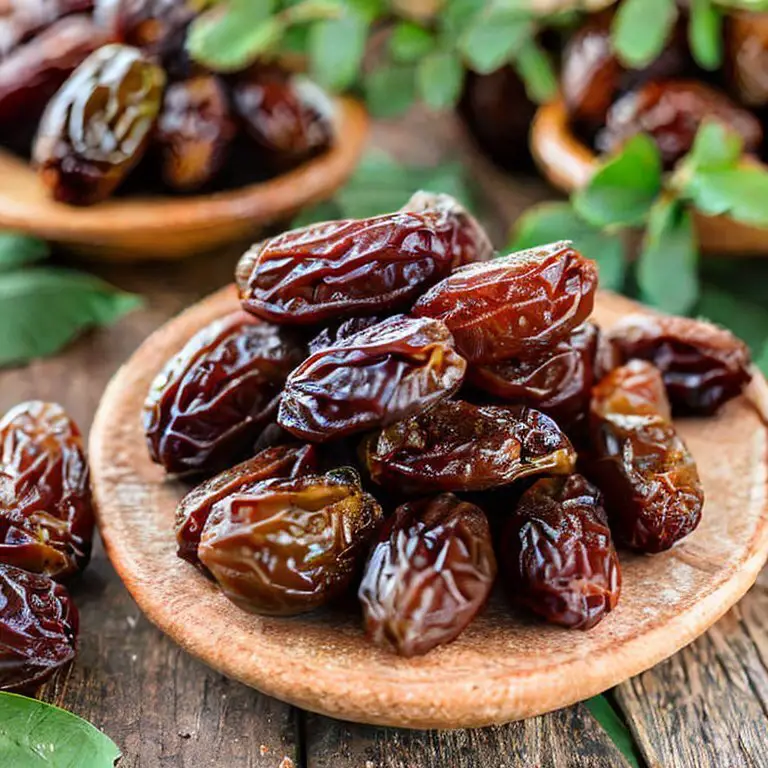
Medjool Dates Nutrition
Medjool dates are not only delicious but also a nutritious food that can provide the body with a wide range of vitamins and minerals. Here is a breakdown of the nutritional value of Medjool dates:
Carbohydrates
Medjool dates are high in carbohydrates, which provide the body with energy. One Medjool date contains approximately 18 grams of carbohydrates. However, unlike refined carbohydrates found in processed foods, the carbohydrates in Medjool dates are complex, meaning they are slowly digested, providing a more sustained release of energy.
Fiber
Fiber is an important nutrient that plays a critical role in digestive health. Medjool dates are a good source of fiber, with one date providing approximately 1.6 grams of fiber. Fiber can help regulate bowel movements, prevent constipation, and promote feelings of fullness, making it easier to stick to a healthy diet.
Vitamins
Medjool dates are a good source of vitamins, including:
Vitamin B6: This vitamin is important for brain function and the production of red blood cells. One Medjool date contains approximately 6% of the recommended daily intake of vitamin B6.
Vitamin K: This vitamin is essential for blood clotting and bone health. One Medjool date contains approximately 2% of the recommended daily intake of vitamin K.
Niacin: Niacin is important for maintaining healthy skin and nervous system function. One Medjool date contains approximately 2% of the recommended daily intake of niacin.
Minerals
Medjool dates are also rich in minerals, including:
Potassium: Potassium is an electrolyte that is essential for maintaining healthy nerve and muscle function. One Medjool date contains approximately 8% of the recommended daily intake of potassium.
Magnesium: Magnesium is important for maintaining healthy bones and regulating blood pressure. One Medjool date contains approximately 2% of the recommended daily intake of magnesium.
Calcium: Calcium is essential for building and maintaining strong bones. One Medjool date contains approximately 1% of the recommended daily intake of calcium.
Iron: Iron is important for the production of red blood cells and the prevention of anemia. One Medjool date contains approximately 1% of the recommended daily intake of iron.
Antioxidants
Medjool dates are also a good source of antioxidants, which can help protect the body against oxidative stress and reduce the risk of chronic diseases such as cancer and heart disease. Medjool dates contain several types of antioxidants, including phenolic compounds and carotenoids.
Calories
It is important to note that Medjool dates are also high in calories and sugar, with one date containing approximately 66 calories and 16 grams of sugar. While they are a nutritious food, it is important to consume Medjool dates in moderation as part of a balanced diet.
Medjool dates are a delicious and nutritious food that can provide the body with a wide range of vitamins, minerals, and antioxidants. While they are high in calories and sugar, when consumed in moderation as part of a balanced diet, Medjool dates can provide a range of health benefits, including improved digestive health, increased energy levels, and reduced risk of chronic diseases.
Final Thoughts
Medjool dates are a delicious and nutritious fruit that has been enjoyed for centuries. They are rich in fiber, vitamins, and minerals, making them an excellent addition to a healthy diet. Medjool dates are also low on the glycemic index, making them an ideal snack for people with diabetes or anyone looking to manage their blood sugar levels. (See also Medjool Dates vs Halawi Dates)
Medjool dates are a versatile ingredient that can be used in a wide range of dishes. They can be eaten raw as a snack, used in cooking to add natural sweetness to dishes, or used to make a range of sweet treats. Additionally, Medjool dates have a range of health benefits, including promoting bone health, supporting digestive health, and reducing the risk of chronic diseases such as heart disease and cancer.
Overall, Medjool dates are a delicious and healthy food that can be enjoyed by people of all ages. Whether eaten as a snack or used in cooking, Medjool dates are a tasty and nutritious way to promote good health and well-being.
Lance has been passionate about the plant-based diet and we have been following a whole food plant-based diet for over 5 years. We focus on health, natural healing, weight management, animal rights, and the health of the planet and environment by focusing on whole plant-based foods and sustainable practices.
Learn more at the About Me page and follow on social media at the links below.




